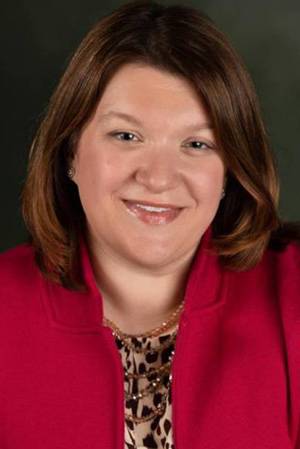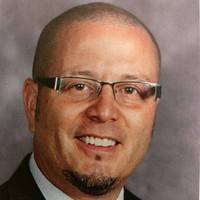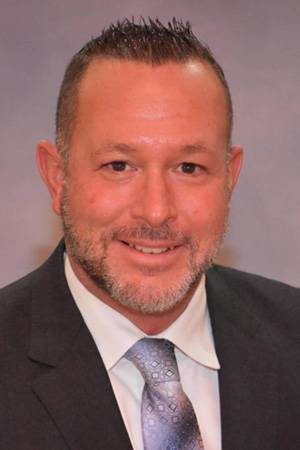School’s back in session, and while a cell phone ban in schools might seem like one simple answer to cyberbullying and unnecessary distractions, at least five Genesee County superintendents are against it, according to questions sent to all eight public school district administrators by The Batavian.
Gov. Kathy Hochul went on a listening tour this summer as she has considered a phone ban for students in New York State schools. Such measures at the district level have been rare so far, with Bethlehem Central School cited as one of only a few of the 4,411 state schools to implement such a ban, and not just on phones at that school, but on all electronics, including earbuds and smartwatches.
Questions included the school district’s current phone policy, thoughts about an outright ban on phones in the school/classroom, how the school community would likely respond, benefits and drawbacks of a ban, and whether it’s worth the potential uphill battle and other logistical and financial considerations.

Elba Central School Superintendent Gretchen Rosales listed several reasons for why a ban is not a great idea, from organizational to financial burdens.
“An outright ban would be difficult to enforce and a problematic interruption to the organization of education. I am much more in support of teaching students how to effectively use cell phones within a system. This includes educating students on the dangers of social media and how a lack of personal communication affects relationships,” Rosales said. “We model what we want our children to learn; this is also true of cell phone use. When something is banned outright, we lose the opportunity to teach students how to effectively manage it.
“Right now, this has not been considered, as the legislation has not been passed. I can see it creating a financial burden on schools to implement another mandate - monitoring for use and detecting possession can be a costly distraction,” she said. “I would not want to speculate on how the entire school community would react to such a ban without having conversations first. This is a topic with varied opinions. Whenever faced with a large-scale policy shift, having an open dialogue with all stakeholders proves to be most effective.”
Elba’s current policy is that cell phones are not allowed at elementary school and that there’s a limited-use phone policy at junior-senior high school. Phone use for “educational purposes,” such as using a calculator or accessing educational sites, is up to teacher discretion, she said. Per the district’s code of conduct, students are “prohibited from taking pictures of or recording others, or using phones in a way that may disrupt the educational process,” she said.
Officials at one of those few schools with a full ban had been quoted as saying it made a difference in students’ interactions with one another and that an “enjoyable noise” could be heard of kids laughing and talking in the hallways versus focused on the phone screen.
Rosales was one of several superintendents who has experienced this, she said, regardless of whether a phone ban is in place.
“I find that students interacting with each other still happens more frequently than we might believe. I would also state that any battle we believe in is worthy of fighting. The crux of the argument lies in a) a balance of providing safe boundaries for children to navigate the world and b) allowing local school districts to decide how best to educate the children in their communities based on the school's specific needs,” she said. “Every school is different — so our approach to the cell phone issue should be as varied as the needs of our individual communities.”

Pembroke Central School Superintendent Matthew Calderón shared the socialization he observed on Wednesday, even with cell phones in hand.
“Today was the first day of school in Pembroke, and I experienced the common and enjoyable sound of kids interacting with one another in the hallways despite many of them having cell phones. We have amazing students, strong families, and wonderful employees, and if the state chooses to ban cell phones, I have full confidence we can navigate it in a way that helps everyone overcome their angst. Is it a battle worth fighting? Good question. The fight to nurture and care for the hearts and minds of our young people is a noble and necessary fight, and at the same time, I believe an all-out ban on cell phones will greatly miss the mark in that regard,” he said. “If we want to help young people learn how to interact with each other in real and authentic ways, there are better ways to do that. I'm also not sure that our academic performance on numerous measures, including state tests, indicates that cell phones are hindering learning here in our small rural school district.”
As for his stance on a cell phone ban, “I believe in local autonomy, and I generally don't support state-wide one-size-fits-all approaches,” he said. “We do not intend to move toward an all-out ban. If it becomes yet another mandate for schools, we will assess what we need to do at that time.”
That being said, Calderón feels that there are advantages and disadvantages to allowing cell phones in schools and to banning them.
“I would need to survey my community to know for sure, but my sense is that the majority of parents, employees and students would be opposed to an outright ban on cell phones,” he said.
Current policy at Pembroke is that cell phone use is permitted during non-instructional time, such as lunch, and during class for instructional purposes in the junior-senior high school, per teacher discretion.
“While some elementary students may have phones, it's not really an issue at the two elementary buildings,” he said. “School districts already have the autonomy to ban phones if they so choose, and I believe it is a decision that should be left to each school district and its community.”

Over at Oakfield-Alabama Central School, the question of banning phones isn’t really the point, Superintendent John Fisgus said.
Students at OA are allowed to carry their cell phones with them at all times and are instructed and taught when they are allowed to use them or not. Our students, who show great respect for these limitations, understand that it is not about banning cell phones, but about teaching them the proper use and time to use them,” Fisgus said. “This understanding and respect from our students is a testament to the effectiveness of our approach. I do not support the banning of cell phones.
"It's important to remember that media literacy is not just a buzzword, but a critical skill for our students who are born and live in a rapidly evolving digital society, of which cell phones are a common denominator,” he said. “Parents and students also find safety in having access to their phones, especially communicating (texting) during emergencies.”
He also cited an important medical reason for keeping one’s phone nearby: apps that work as blood-level monitors.
“I, for one, am a diabetic who utilizes a sensor and a cell phone app to constantly monitor my glucose levels,” he said. “My cell phone provides me with alerts and real-time glucose readings. I certainly know we have students in our district who do the same.
“Outright banning cell phones is an extreme measure in my eyes. Teaching this generation how/when to use cell phones during school hours provides a healthy balance for our staff, students, and their families,” he said. “Again, let's ‘teach’ about and role model when to use cell phones, not ban them.”
Likewise, Batavia City and Le Roy Central school district superintendents Jason Smith and Merritt Holly oppose a phone ban and believe that it’s a district's responsibility to teach about cell phone use rather than merely banish it from the classroom.

“Our District does not have an outright ban, and I believe we need to teach students how to properly manage their devices' responsibility, as opposed to a total ban, Superintendent Jason Smith said about the Batavia City Schools’ students. “There are cell phone rules on airplanes, concerts, movie theaters, etc., and I believe schools should operate under a similar premise: use the technology responsibly and appropriately.”
The Batavian must note that, in September 2023, the district’s Board of Education joined a consortium formed to sue social media giants — TikTok, Snapchat, and Facebook, for example — for creating “a youth mental health crisis caused by social media addiction” via their cell phones. So, while the district is against banning cell phones during school time, it is also suing social media for bombarding kids through those phones.
So, The Batavian asked Smith why not remove those opportunities for social media during the school day.
"At our schools, we have procedures in classrooms that provide structure and guidelines for cell phone use, and we are continually refining and updating these procedures, as well as providing reminders to our students," Smith said. "When used properly, cell phones have a myriad of teaching opportunities, too, as I have seen teachers use apps and programs that enhance lessons. If we are required to institute a total ban, then we will do so, but again, we have procedures in place at our schools that govern cell phone use. Completely removing cell phones does nothing to teach students proper use--that is precisely why we have rules and procedures in our schools."
And is the district educating kids about the dangers of social media on their cell phones since you speak about teaching responsibility to them?
"We have provided training to our library media specialists over the years on digital citizenship, and they have subsequently written a curriculum on this topic. We have two digital citizenship classes at the Batavia Middle School in grades 5 and 8," he said. "Finally, at every opportunity we have, our principals and assistant principals, along with our counselors, always remind and teach our students proper cell phone use. I would continue to encourage families to continue to do the same with their children."
When asked if he thought his school community — parents, staff, faculty, students — would benefit and get on board with a phone ban, Smith replied:
“There would likely be a wide range of opinions on this matter, with some strongly in favor and some strongly opposed, and many views in the middle,” he said. “Regardless, we are educators first and foremost and need to teach students how to use devices properly, just as we teach 16-year-olds how to drive a car properly – both can be dangerous if used improperly.
“Should the governor be successful in gaining legislative support for this measure, we will work with our school community and staff on how to best implement such a policy,” Smith said. “An outright and full ban does not teach students how to properly manage their devices. In addition, cell phones have become an integral part of society and often serve as a measure of safety for parents and students.”
He said the district’s current policy has cell phones off and put away, but it depends on the school. Each school has its own special guidelines based on the age of students.
“We do not have a complete cell phone ban at any of our schools, and phones are allowed in schools,” he said.
That policy has not seemed to deter students from interacting with one another, something that may go against one’s belief that devices are isolating, according to Smith’s daily walks through school.
“I am in our schools every day, and not a day goes by when I do not hear the enjoyable noise of students interacting with one another and our staff – with or without a cell phone,” he said.

Le Roy has a color-coded policy, where the Red Zone at Wolcott Street School for grades kindergarten through grade six signals that phones are to be off and in one’s backpack or locker during the school day, versus a Yellow Zone in the Junior/Senior High School for grades seven through 12 is for the hallway, cafeteria, classrooms, and library.
The zones were created to guide students in properly using their electronic devices, Le Roy Central School Superintendent Merritt Holly said. The teacher communicates if using a cell phone is allowed in these areas. Red Zones at the high school are in the bathrooms, locker rooms and auditorium.
He would not support an outright ban of phones in the classroom and believes it should remain a local school decision. Implementing a ban would also eliminate the opportunity to do what schools are supposed to do, he said and ignores the main issues about phone usage.
“Our cell phone procedures function in both buildings and allow teachers and administrators to educate our students on properly using their electronic devices. The cell phone procedures also allow for flexibility, especially at the Jr/Sr High School. If a Jr/Sr High School teacher wants to make their classroom a red zone for the day, week, month, or year, they have the option to do so. Another teacher may have the student use their phone for instructional purposes. Building principals could also limit cell phone use for a particular student if a student violated the Code of Conduct or had a zone violation,” he said. “Instructing students in and on digital literacy is essential in education. Students need to learn how to use technology safely, effectively, and responsibly to communicate effectively. Instituting a ban does not address root causes or concerns around cell phone use.”
The Batavian did not receive responses from Alexander, Byron-Bergen and Pavilion school districts.
Hochul seemed fairly confident in her decision to move toward a ban after her tour of school districts earlier this year. If she approves a state law, New York will join Florida, Louisiana, Indiana, South Carolina and Los Angeles County with similar restrictions. New York City is also reportedly considering its own ban ahead of the potential state-wide mandate.
“I pretty much know where I’m going. I believe people will come along because I know what I’ve heard, that this is probably the one bipartisan — I want to say nonpartisan — issue that really is having a breakthrough,” Hochul said in a recent interview with The NY Times. “I want to go big on this one. We’re going big.”
Hochul also visited a Syracuse-area school on Thursday and answered some questions about a potential ban.
